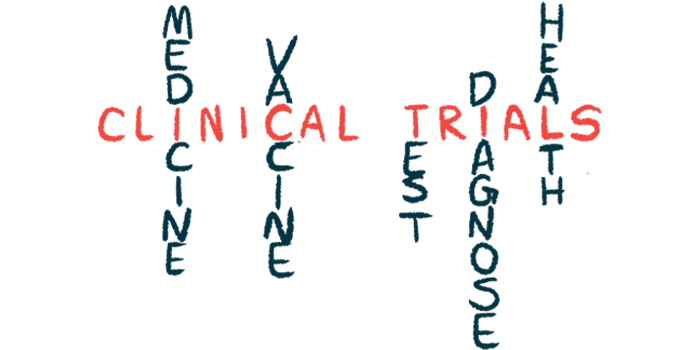First COPD Patient Enrolled in Phase 4 Study of Yupelri vs. Spiriva
Written by |

A first patient has been enrolled in a Phase 4 study of the effectiveness of Yupelri (revefenacin) against Spiriva (tiotropium) in improving lung health in adults with severe chronic obstructive pulmonary disease (COPD).
The respective safety of these two approved, once-daily COPD maintenance treatments will also be evaluated.
Yupelri, developed by Theravance Biopharma and Mylan (now part of Viatris), is a bronchodilator, a type of medication that relaxes and widens the lung airways, making breathing easier. It is available as a solution to be inhaled through a nebulizer, a small machine used to turn liquid into a fine mist.
Its U.S. approval in 2018 was based on data from several Phase 3 studies showing Yupelri’s superiority over a placebo at ameliorating lung function in patients with moderate to severe COPD.
Spiriva, a bronchodilator by Boehringer Ingelheim, is available in two forms: Spiriva HandiHaler, a dry powder for inhalation approved by the U.S. Food and Drug Administration in 2004, and Spiriva Respimat, an inhalation spray, approved in 2014.
The double-blind and parallel-group Phase 4 study, called PIFR-2 (NCT05165485) and sponsored by Theravance and Viatris, aims to look more closely at the effects of Yupelri on lung function — relative to Spiriva and against a placebo — in adults with severe to very severe COPD and suboptimal inspiratory flow rate, a measure of inspiratory effort.
Up to 366 adults, ages 40 and older, will be enrolled in the PIFR-2 trial, and randomly assigned to treatment either with Yupelri inhalation solution, delivered once daily through a standard jet nebulizer, or with the Spiriva HandiHaler once daily; others will be assigned to a placebo for each therapy. Dosing will run for 12 weeks (about three months).
PIFR-2 is recruiting or preparing to recruit patients at multiple sites across the U.S.; contact and site information is available here.
Its primary goal will be to assess changes in forced expiratory volume in one second (FEV1) — a lung function parameter that measures how much air a person can forcibly exhale in one second — from the study’s beginning of the study until its end. The effects of treatment on other measures of lung health, as well as on the use of rescue therapies, will also be evaluated.
The trial is set to conclude in September, and top-line data are expected in the first quarter of 2023.
“We, and our partner Viatris, believe we have just scratched the surface of Yupelri’s contribution to the COPD community,” Rick E. Winningham, CEO of Theravance, said in a press release. “The enrollment of the first patient in the Phase 4 PIFR-2 study demonstrates, through continued investment in controlled clinical studies, our commitment to provide healthcare professionals with the evidence needed to design personalized treatment plans in order to make better informed decisions for their COPD patients.”





